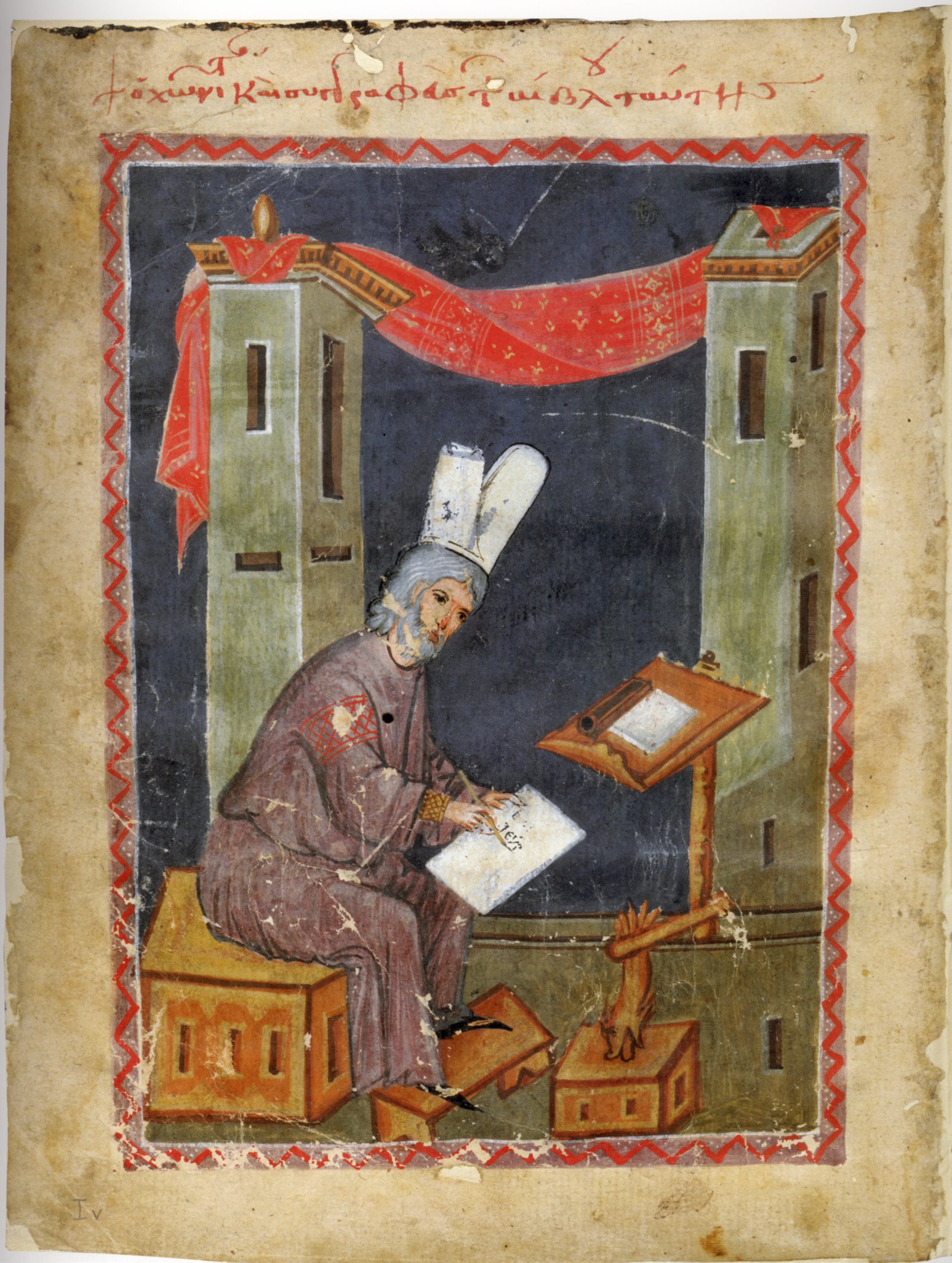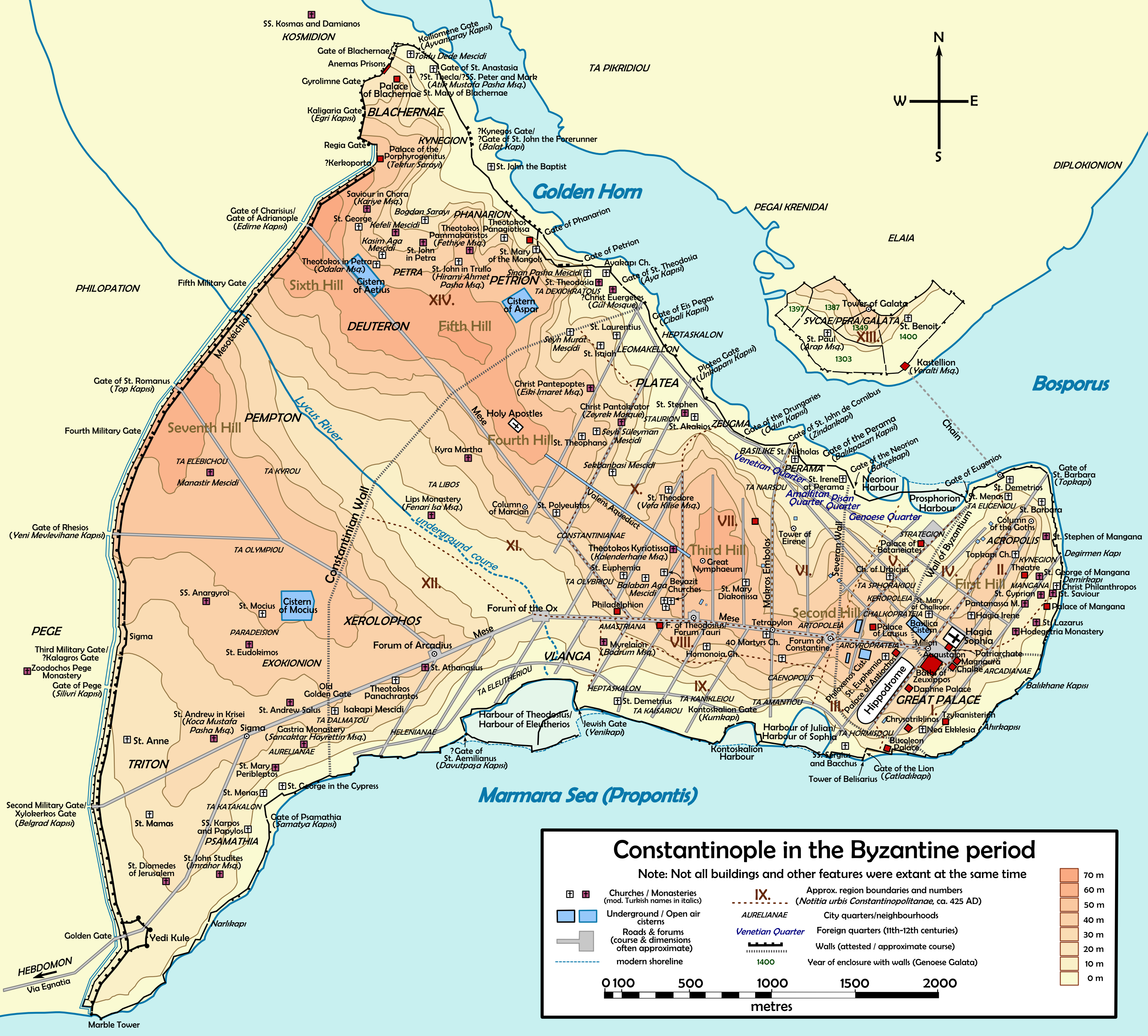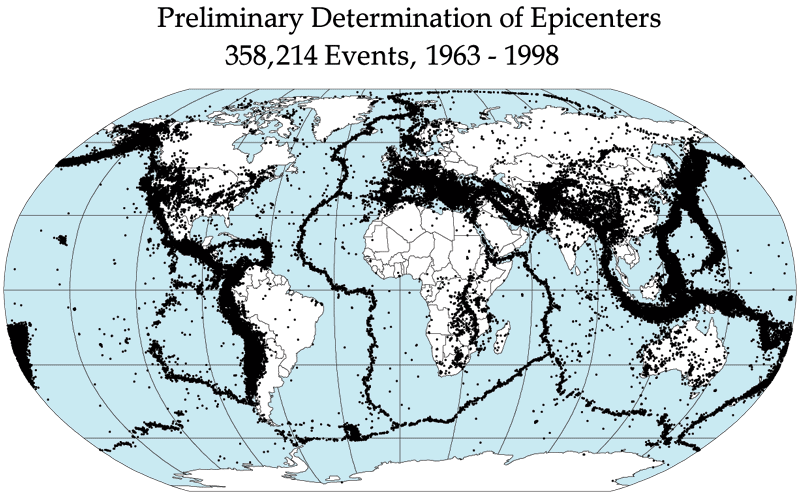|
Lorenzo De Monacis
Lorenzo de Monacis was a diplomat serving the Republic of Venice. He was also an influential historian whose chronicles were relied upon by Flavio Biondo and Marcantonio Sabellico. Diplomatic career In 1386 Lorenzo de Monacis accompanied Venetian diplomat Pantaleone Barbo to Hungary representing Venice's interests during a crisis involving the succession to the Hungarian throne. The diplomatic mission was successful as described in a report by de Monacis to the Venetian government. During the mission, de Monacis wrote a poem defending Mary, Queen of Hungary and Elizabeth of Bosnia, who were accused of the murder of Charles III of Naples. In 1389, de Monacis accompanied Barbo again on another diplomatic mission to Hungary when they fell victims to robbery. The two diplomats, having lost all their personal belongings during the incident, received 60 gold ducats as compensation awarded to them by the Great Council of Venice. De Monacis returned to Hungary on another mission in ... [...More Info...] [...Related Items...] OR: [Wikipedia] [Google] [Baidu] |
Diplomat
A diplomat (from grc, δίπλωμα; romanized ''diploma'') is a person appointed by a state or an intergovernmental institution such as the United Nations or the European Union to conduct diplomacy with one or more other states or international organizations. The main functions of diplomats are: representation and protection of the interests and nationals of the sending state; initiation and facilitation of strategic agreements; treaties and conventions; promotion of information; trade and commerce; technology; and friendly relations. Seasoned diplomats of international repute are used in international organizations (for example, the United Nations, the world's largest diplomatic forum) as well as multinational companies for their experience in management and negotiating skills. Diplomats are members of foreign services and diplomatic corps of various nations of the world. The sending state is required to get the consent of the receiving state for a person proposed to serv ... [...More Info...] [...Related Items...] OR: [Wikipedia] [Google] [Baidu] |
Ducat
The ducat () coin was used as a trade coin in Europe from the later Middle Ages from the 13th to 19th centuries. Its most familiar version, the gold ducat or sequin containing around of 98.6% fine gold, originated in Venice in 1284 and gained wide international acceptance over the centuries. Similarly named silver ducatons also existed. The gold ducat circulated along with the Florentine florin and preceded the modern British pound sterling and the United States dollar. Predecessors The word ''ducat'' is from Medieval Latin ''ducalis'' = "relating to a duke (or dukedom)", and initially meant "duke's coin" or a "duchy's coin". The first issue of scyphate billon coins modelled on Byzantine ''trachea'' was made by King Roger II of Sicily as part of the Assizes of Ariano (1140). It was to be a valid issue for the whole kingdom. The first issue bears the figure of Christ and the Latin inscription ''Sit tibi, Christe, datus, quem tu regis iste ducatus'' (meaning "O Christ, let thi ... [...More Info...] [...Related Items...] OR: [Wikipedia] [Google] [Baidu] |
Visconti Of Milan
The Visconti of Milan are a noble Italian family. They rose to power in Milan during the Middle Ages where they ruled from 1277 to 1447, initially as Lords then as Dukes, and several collateral branches still exist. The effective founder of the Visconti Lordship of Milan was the Archbishop Ottone, who wrested control of the city from the rival Della Torre family in 1277. Origins The earliest members of the Visconti lineage appeared in Milan in the second half of the 11th century. The first evidence is on October 5, 1075, when Ariprando Visconti and his son Ottone ("Ariprandus Vicecomes", "Otto Vicecomes filius Ariprandi") attended and signed together some legal documents in Milan. Ariprando Visconti's family is believed to have pre-existed in Milan and obtained the title of viscount, which became hereditary throughout the male descent. In the years following 1075, Ottone Visconti is shown in the proximity of the Salian dynasty's sovereigns, Henry IV and his son Conrad. His d ... [...More Info...] [...Related Items...] OR: [Wikipedia] [Google] [Baidu] |
Francesco Foscari
Francesco Foscari (19 June 1373 – 1 November 1457) was the 65th Doge of the Republic of Venice from 1423 to 1457. His reign, the longest of all Doges in Venetian history, lasted 34 years, 6 months and 8 days, and coincided with the inception of the Italian Renaissance. Biography His grave. Francesco Foscari was born in 1373, as the oldest son of Nicolò Foscari and his wife Cateruzia Michiel. The Foscari family had been of only moderate importance, but had managed to become one of the few noble families that secured a hereditary place in the Great Council of Venice after the so-called '' Serrata'' ("Closing") of the Great Council, and had begun to rise in prominence throughout the 14th century. Francesco's ancestors began holding high public office, and his father Nicolò even became a member of the powerful Council of Ten. Francesco served the Republic of Venice in numerous official capacities—as ambassador, president of the Council of Forty, member of the Council of Ten ... [...More Info...] [...Related Items...] OR: [Wikipedia] [Google] [Baidu] |
Nicetas Choniates
Niketas or Nicetas Choniates ( el, Νικήτας Χωνιάτης; c. 1155 – 1217), whose actual surname was Akominatos (Ἀκομινάτος), was a Byzantine Greek government official and historian – like his brother Michael Akominatos, whom he accompanied to Constantinople from their birthplace Chonae (from which came his nickname, "Choniates" meaning "person from Chonae"). Nicetas wrote a history of the Eastern Roman Empire from 1118 to 1207. Life Nicetas Akominatos was born to wealthy parents around or after 1150 in Phrygia in the city of Chonae (near the modern Honaz in Turkey). Bishop Nicetas of Chonae baptized and named the infant; later he was called "Choniates" after his birthplace. When he was nine, his father dispatched him with his brother Michael to Constantinople to receive an education. Niketas' older brother greatly influenced him during the early stages of his life. He initially secured a post in the civil service, and held important appointments under t ... [...More Info...] [...Related Items...] OR: [Wikipedia] [Google] [Baidu] |
Siege Of Constantinople (1204)
The sack of Constantinople occurred in April 1204 and marked the culmination of the Fourth Crusade. Crusader armies captured, looted, and destroyed parts of Constantinople, then the capital of the Byzantine Empire. After the capture of the city, the Latin Empire (known to the Byzantines as the ''Frankokratia'' or the Latin Occupation) was established and Baldwin I of Constantinople, Baldwin of Flanders was crowned Emperor Baldwin I of Constantinople in the Hagia Sophia. After the city's sacking, most of the Byzantine Empire's territories were divided up among the Crusaders. Byzantine aristocrats also established a number of small independent splinter states, one of them being the Empire of Nicaea, which would eventually recapture Constantinople in 1261 and proclaim the reinstatement of the Empire. However, the Byzantine Empire under the Palaiologos dynasty, restored Empire never managed to reclaim its former territorial or economic strength, and eventually fell to the rising ... [...More Info...] [...Related Items...] OR: [Wikipedia] [Google] [Baidu] |
Tommaso Mocenigo
Tommaso Mocenigo (1343–1423) was ''doge'' (chief magistrate) of the Republic of Venice from 1414 until his death. Biography He commanded the crusading fleet in the expedition to Nicopolis in 1396 and also won battles against the Genoese during the War of Chioggia of 1378–1381. While he was Venetian ambassador at Cremona, he was elected doge (1414), and he escaped in secret, fearing that he might be held a prisoner by Gabrino Fondolo, tyrant of that city. He made peace with the Turkish sultan, but, when hostilities broke out afresh, his fleet defeated that of the Turks at the Battle of Gallipoli. During his reign, the patriarch of Aquileia Louis of Teck formed an anti-Venetian alliance with Emperor Sigismund. Venice, under a double-sided attack, was able to launch an offensive that, in 1419-1420, conquered Udine, Cividale, Feltre, Belluno and most of Friuli from the Aquileian patriarchate. The Cadore also surrendered spontaneously. The ensuing treaty led t ... [...More Info...] [...Related Items...] OR: [Wikipedia] [Google] [Baidu] |
Earthquake
An earthquake (also known as a quake, tremor or temblor) is the shaking of the surface of the Earth resulting from a sudden release of energy in the Earth's lithosphere that creates seismic waves. Earthquakes can range in intensity, from those that are so weak that they cannot be felt, to those violent enough to propel objects and people into the air, damage critical infrastructure, and wreak destruction across entire cities. The seismic activity of an area is the frequency, type, and size of earthquakes experienced over a particular time period. The seismicity at a particular location in the Earth is the average rate of seismic energy release per unit volume. The word ''tremor'' is also used for Episodic tremor and slip, non-earthquake seismic rumbling. At the Earth's surface, earthquakes manifest themselves by shaking and displacing or disrupting the ground. When the epicenter of a large earthquake is located offshore, the seabed may be displaced sufficiently to cause ... [...More Info...] [...Related Items...] OR: [Wikipedia] [Google] [Baidu] |
Plague (disease)
Plague is an infectious disease caused by the bacterium ''Yersinia pestis''. Symptoms include fever, weakness and headache. Usually this begins one to seven days after exposure. There are three forms of plague, each affecting a different part of the body and causing associated symptoms. Pneumonic plague infects the lungs, causing shortness of breath, coughing and chest pain; bubonic plague affects the lymph nodes, making them swell; and septicemic plague infects the blood and can cause tissues to turn black and die. The bubonic and septicemic forms are generally spread by flea bites or handling an infected animal, whereas pneumonic plague is generally spread between people through the air via infectious droplets. Diagnosis is typically by finding the bacterium in fluid from a lymph node, blood or sputum. Those at high risk may be vaccinated. Those exposed to a case of pneumonic plague may be treated with preventive medication. If infected, treatment is with antibiotic ... [...More Info...] [...Related Items...] OR: [Wikipedia] [Google] [Baidu] |
Liberty
Liberty is the ability to do as one pleases, or a right or immunity enjoyed by prescription or by grant (i.e. privilege). It is a synonym for the word freedom. In modern politics, liberty is understood as the state of being free within society from control or oppressive restrictions imposed by authority on one's way of life, behavior, or political views. In theology, liberty is freedom from the effects of "sin, spiritual servitude, rworldly ties". Sometimes liberty is differentiated from freedom by using the word "freedom" primarily, if not exclusively, to mean the ability to do as one wills and what one has the power to do; and using the word "liberty" to mean the absence of arbitrary restraints, taking into account the rights of all involved. In this sense, the exercise of liberty is subject to capability and limited by the rights of others. Thus liberty entails the responsible use of freedom under the rule of law without depriving anyone else of their freedom. Liberty can be ... [...More Info...] [...Related Items...] OR: [Wikipedia] [Google] [Baidu] |
Luxury Goods
In economics, a luxury good (or upmarket good) is a good for which demand increases more than what is proportional as income rises, so that expenditures on the good become a greater proportion of overall spending. Luxury goods are in contrast to necessity goods, where demand increases proportionally less than income. ''Luxury goods'' is often used synonymously with ''superior goods''. Definition The word "luxury" originated from the Latin word ''luxuria'', which means exuberance, excess, or abundance. A luxury good can be identified by comparing the demand for the good at one point in time against the demand for the good at a different point in time, at a different income level. When personal income increases, demand for luxury goods increases even more than income does. Conversely, when personal income decreases, demand for luxury goods drops even more than income does. For example, if income rises 1%, and the demand for a product rises 2%, then the product is a luxury good. ... [...More Info...] [...Related Items...] OR: [Wikipedia] [Google] [Baidu] |
Foreign Policy
A State (polity), state's foreign policy or external policy (as opposed to internal or domestic policy) is its objectives and activities in relation to its interactions with other states, unions, and other political entities, whether bilaterally or through multilateralism, multilateral platforms.Foreign policy ''Encyclopedia Britannica'' (published January 30, 2020). The ''Encyclopedia Britannica'' notes that a government's foreign policy may be influenced by "domestic considerations, the policies or behaviour of other states, or plans to advance specific geopolitical designs." History The idea of long-term management of relationships followed the development of professional diplomatic corps that managed diplomacy. In the 18th century, due to extreme turbulence in History of Europe# ...[...More Info...] [...Related Items...] OR: [Wikipedia] [Google] [Baidu] |











